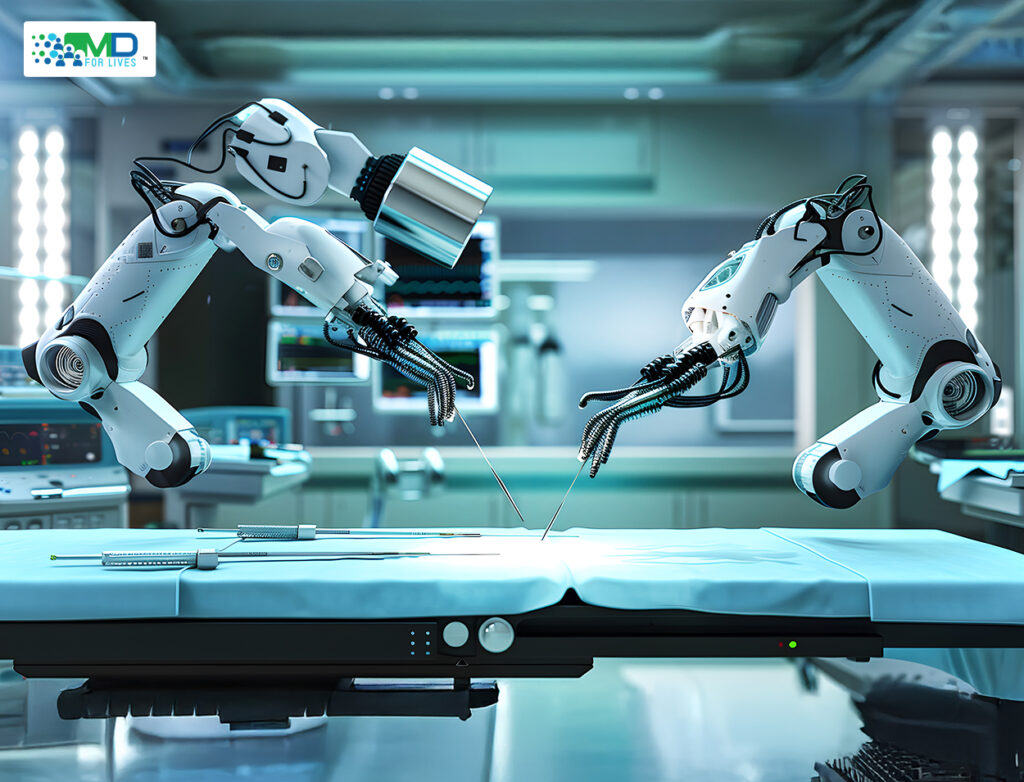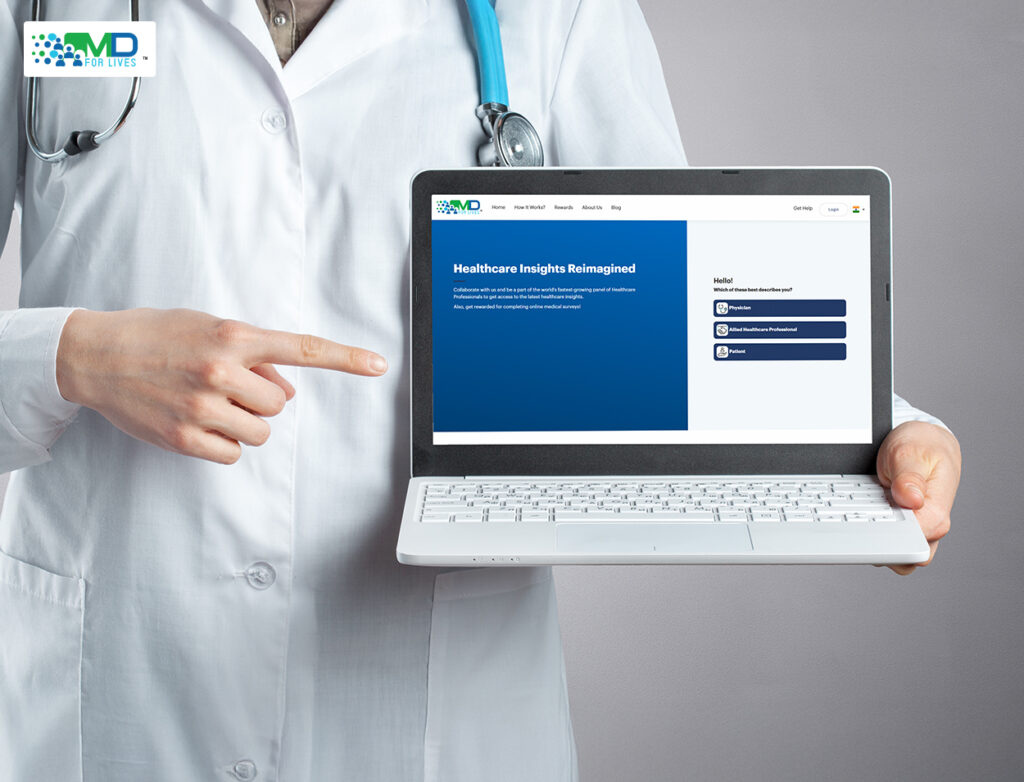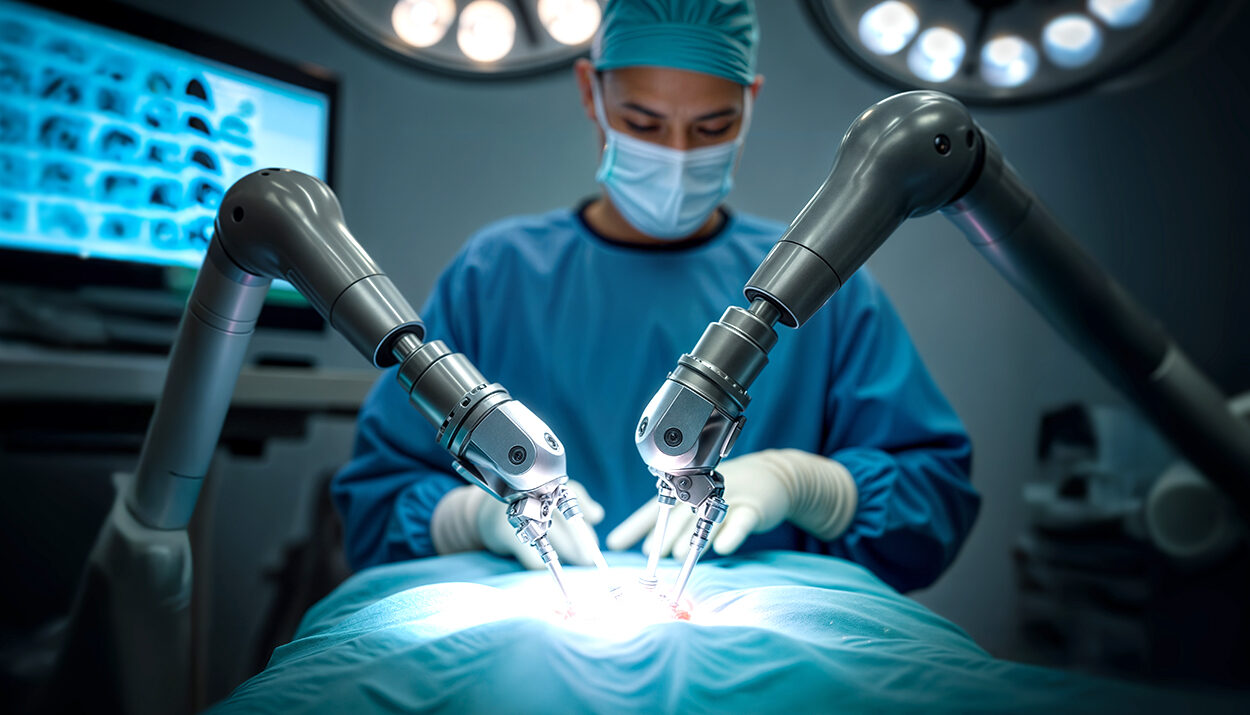A surgeon walks into the OT, armed with advanced surgical instruments and a lifetime of training. But where did those instruments come from? Who drives the surgical innovations?
The insights of surgeons, who use these instruments day in and day out, are often the starting point. In the operating room, even the smallest moments can highlight design flaws, workflow inefficiencies, or hidden risks that testing might miss. Over time, these real-world experiences lead to the development of better surgical instruments, safer techniques, and smarter treatments.
But turning a surgeon’s experience into innovation requires more than just observation. It takes the valuable insights of medical professionals who’ve lived these challenges day after day. This is where market research surveys for surgeons become essential, gathering data and feedback to identify the gaps and needs that shape meaningful advancements in tools, techniques, and patient care.
According to MedTech Europe, nearly 70% of medical device companies now seek direct feedback from healthcare professionals during development. For surgical teams, this opens a valuable opportunity to influence the tools and technologies they rely on.
One way this input is being captured is through paid medical surveys! These surveys offer a structured, efficient way for future surgeons to share what works, what doesn’t, and what needs improvement.
Let’s explore how these medical surveys are shaping the tools, techniques, and systems that will define the next era of surgery.
Why Surgical Innovations Need Real-World Insights
Surgical innovation is most effective when it is based on real-world insights. Surgeons are usually the first to notice when something disrupts patients’ safety, slows down a procedure, or adds unnecessary medical complexity. These insights often don’t emerge in controlled trials or early-stage R&D, but during repeated, high-pressure situations in the operating room.
Robotic systems are a strong reflection of this shift. The Da Vinci platform, now used in over 1.8 million procedures a year, has evolved not just through engineering advancements but through continuous surgical input. Refinements in grip control, navigation, and workflow integration were shaped directly by the professionals using it in practice. This resulted in fewer complications and smoother adoption across specialties.
As surgical tools become more complex, real-world insight is no longer optional. Market research surveys for surgeons are a great way to gather this knowledge and ensure that what’s built reflects how surgery is actually performed.
How Paid Surveys are Driving Surgical Innovation
Innovation only works when it keeps pace with the realities of surgery, and that means capturing input from surgeons in a way that’s scalable, specific, and structured. That’s where paid medical surveys are proving valuable – not just as data collection tools, but as direct links between surgical practice and healthcare development.
These surveys offer researchers a broader, more diverse perspective across clinical procedures, settings, and locations. They’re used to assess how a treatment or drug performs outside controlled environments or what practical barriers stand in the way of new innovations in surgery.
To make this possible, platforms like MDForLives are redefining how surgeon voices are gathered at scale. Built for medical professionals, the platform facilitates medical surveys with experienced surgeons to shape the future of surgical innovation. They offer rewards for their time while collecting insights that help improve surgical procedures.
Impact of Surveys in New Surgical Innovations
From robotics to intraoperative AI, the most impactful surgical advancements aren’t just built in labs; they’re tested, refined, and validated through real clinical experience.
Here’s how focused surgical input has influenced some of the most meaningful developments in recent years.
1. Surgical Robotics

Robotic systems have changed the way many clinical procedures are performed but their success depends on continuous refinement. Future surgeons working with these systems daily are often the first to notice where precision, control, or integration could be improved. Their feedback captured through structured medical surveys has been instrumental in guiding upgrades and enhancing real-world patient care.
At NYU Langone Health, this approach is already in motion. Following their merger with Long Island Community Hospital, the team adopted newer robotic systems and actively incorporated surgeon input to guide improvements. With over 1,500 robotic procedures completed, their data showed clear results, such as – enhanced precision, reduced intraoperative bleeding, shorter recovery times. In fact, in many cases, same-day discharge!.
It’s a clear example of how structured input from healthcare professionals can directly influence the evolution of surgical technology!
2. Minimally Invasive Procedures
While robotics stole the spotlight, it was during the COVID-19 crisis that real-time feedback saved lives in minimally invasive surgery. Surgeons had to adjust quickly to new safety rules and limited resources in the OT. Their experiences, shared through surveys, highlighted what needed to change.
In fact, during the COVID-19 phase, a medical survey among MIS surgeons in India captured their frontline experiences. It showed how they adapted quickly to the challenges — using pre-op testing, PPE, and new surgical techniques to reduce transmission.
This feedback didn’t go unnoticed. It led to practical changes in how procedures were done, especially in low-resource settings. Robotic and laparoscopic tools were adapted to be more cost-effective without compromising patient healthcare.
It is crucial insights like these, collected through medical surveys, that help professionals refine existing procedures. These clinical insights further lead to better precision, fewer complications, and techniques that work in the real world.
3. AI and Machine Learning
AI is becoming an integral part of healthcare – from real-time tissue recognition to workflow automation and post-op analysis. But without clinical feedback, these tools often miss the nuances that matter in high-stakes environments.
Google Health’s AI model for breast cancer screening is a strong example. During early testing, clinicians, including surgeons, provided feedback on its interface, diagnostic accuracy, and how well it fit into routine care. Their input helped refine the model’s ability to detect subtle abnormalities in mammograms that were often missed. The result was a tool that is now nearly 11.5% more accurate than human radiologists in some cases. It also supports faster, more confident diagnoses.
As AI becomes more embedded in surgical practice, structured feedback like this will be critical to ensure it complements, not complicates, clinical decision-making.
4. New medical devices
Surgeons don’t just use these medical surveys to improve existing tools, they also contribute in the surveys to share new ideas, test early concepts, and help shape what gets developed next.
In the 1990s, surgeon feedback led to the development of the Acrobot, a robotic system designed to assist in knee surgeries. Surgeons identified challenges in achieving precise bone cuts during procedures. Incorporating their insights, engineers developed the Acrobot, which enhanced surgical precision and improved patient outcomes.
Therefore, we highly encourage all surgeons across nations to participate in paid medical surveys for surgical innovation.
Make Your Insights Count in the Next Wave of Surgical Innovation
Every time a clinical challenge is flagged, a new technique is adapted, or a tool is refined, it adds to the evolution of surgical care. That’s why companies are no longer treating surgeon feedback as a formality but as key inputs.
These insights are making a huge difference!
According to a 2024 MedTech Outlook report, 68% of surgeons are more likely to trust a tool they’ve had a hand in shaping. When innovation includes surgical insight, it’s not just more adoptable – it’s more effective.
Here’s what makes medical surveys worth surgeons’ time:
- Fair compensation for clinical input: Paid surveys for surgical professionals offer an added income stream for those with a busy schedule. Many platforms also offer flexible incentives like gift cards or honoraria based on survey type.
- Real influence on surgical innovation: The feedback helps improve tools, refine procedures, and guide decisions in medical device development and healthcare policies, often at the early stages.
- Minimal time, maximum relevance: Surveys are short, focused, and designed to fit into tight clinical schedules. Choose when and how to contribute!
- Support for meaningful research: Many medical surveys are tied to real-world surgical challenges; from post-op recovery barriers to system usability in the OT. Sharing your input supports more grounded, data-driven innovation.

If you’re looking for a structured way to contribute to medical innovation, MDForLives makes it easy to get involved. The platform connects surgical professionals with research that values their input without disrupting their schedule or commitments.
It’s a win-win! You help shape new surgical innovations while being rewarded for the time and expertise you bring. Plus, when that insight feeds into meaningful research, the result is better tools, smarter systems, and stronger treatments for the patients.
FAQs
-
What is an example of surgical intervention
A common example of surgical intervention is appendectomy, where a surgeon removes the appendix due to infection or inflammation. This procedure is typically performed when conservative treatments fail, and it can prevent life-threatening complications like rupture.
-
What kind of surgical innovations could help humans in the future?
The future of surgery looks promising, with surgical innovations like AI-driven surgical planning, robotic-assisted surgeries, and personalized implants leading the charge. Regenerative surgery using stem cells and advanced biomaterials will likely improve recovery times and improve tissue healing, while 3D-printed organs might become a reality.
-
What are medical surveys for surgeons?
Best paid surveys for surgical professionals are designed to gather insights from healthcare professionals about new technologies, surgical techniques, and patient care practices. These surveys allow surgeons to share their real-world experiences and provide valuable feedback on surgical innovations.
-
What are the different types of medical surveys for surgeons?
There are several types of medical surveys for surgeons, including those focused on surgical tools, patient care protocols, and emerging technologies like robotic surgery or AI diagnostics. Some surveys collect feedback on post-operative care and recovery methods, while others focus on evaluating biomaterials or implant designs.
-
How can surgeons benefit from taking medical surveys?
Surgeons gain many benefits from participating in medical surveys. Not only do they contribute to advancing surgical innovations and improving patient care, but they also earn compensation for their time.
References:
- Intuitive da Vinci
https://www.intuitive.com/en-us/products-and-services/da-vinci
- NYU Langone merges with Long Island hospital as new high-tech facility offering robotic procedures
https://nypost.com/2025/03/03/us-news/nyu-langone-merges-with-long-island-hospital-introduces-robotics/

MDForLives is a global healthcare intelligence platform where real-world perspectives are transformed into validated insights. We bring together diverse healthcare experiences to discover, share, and shape the future of healthcare through data-backed understanding.



